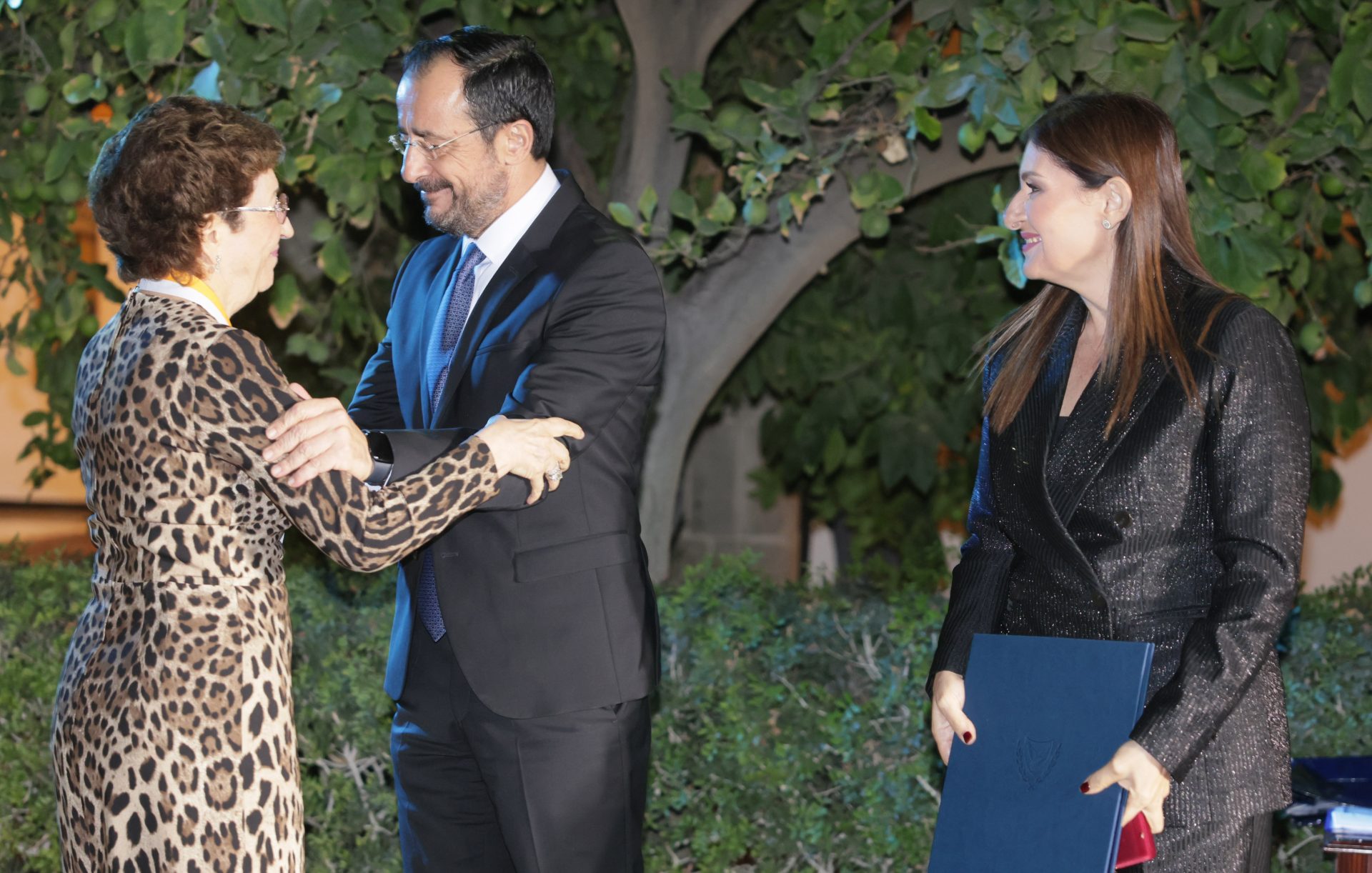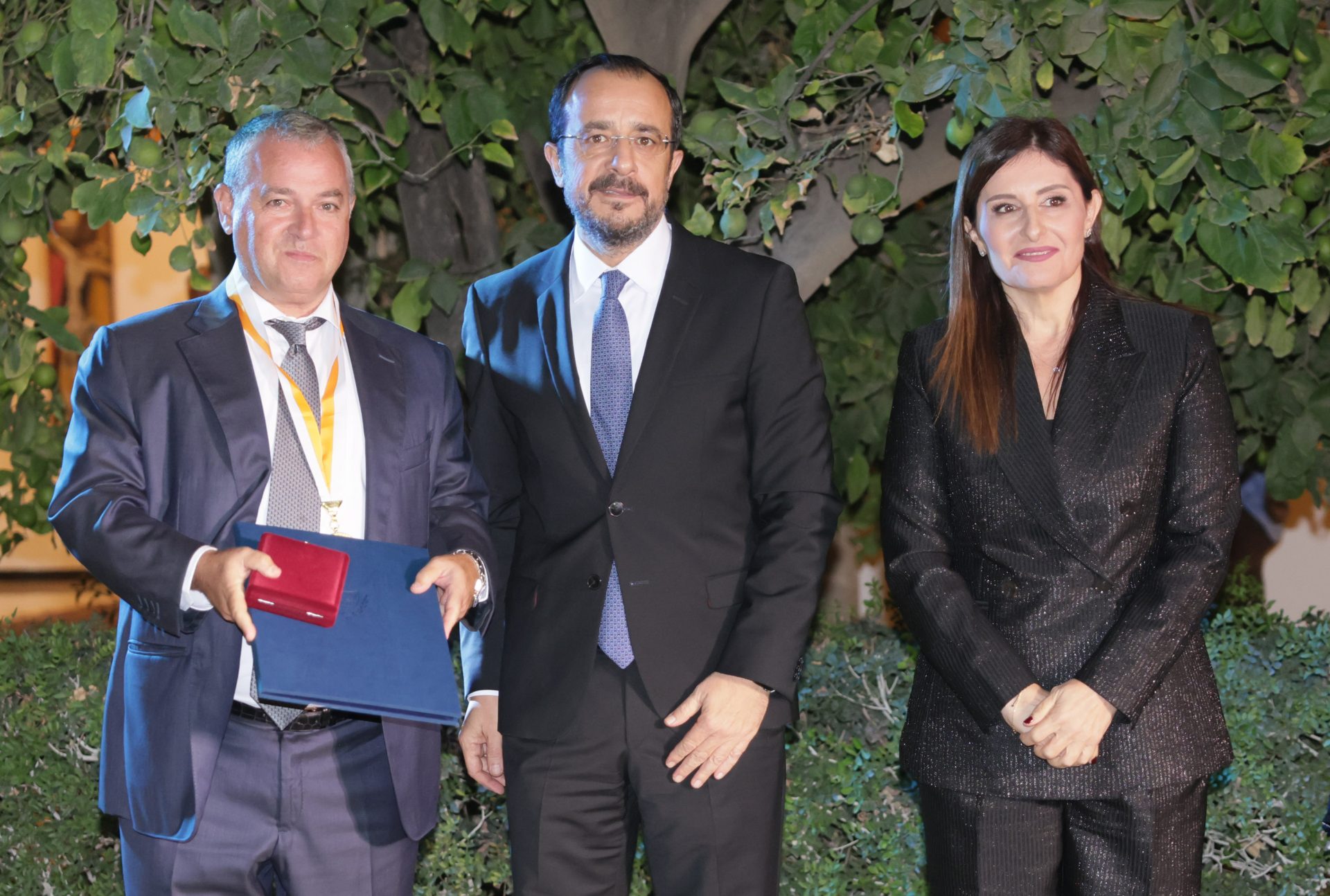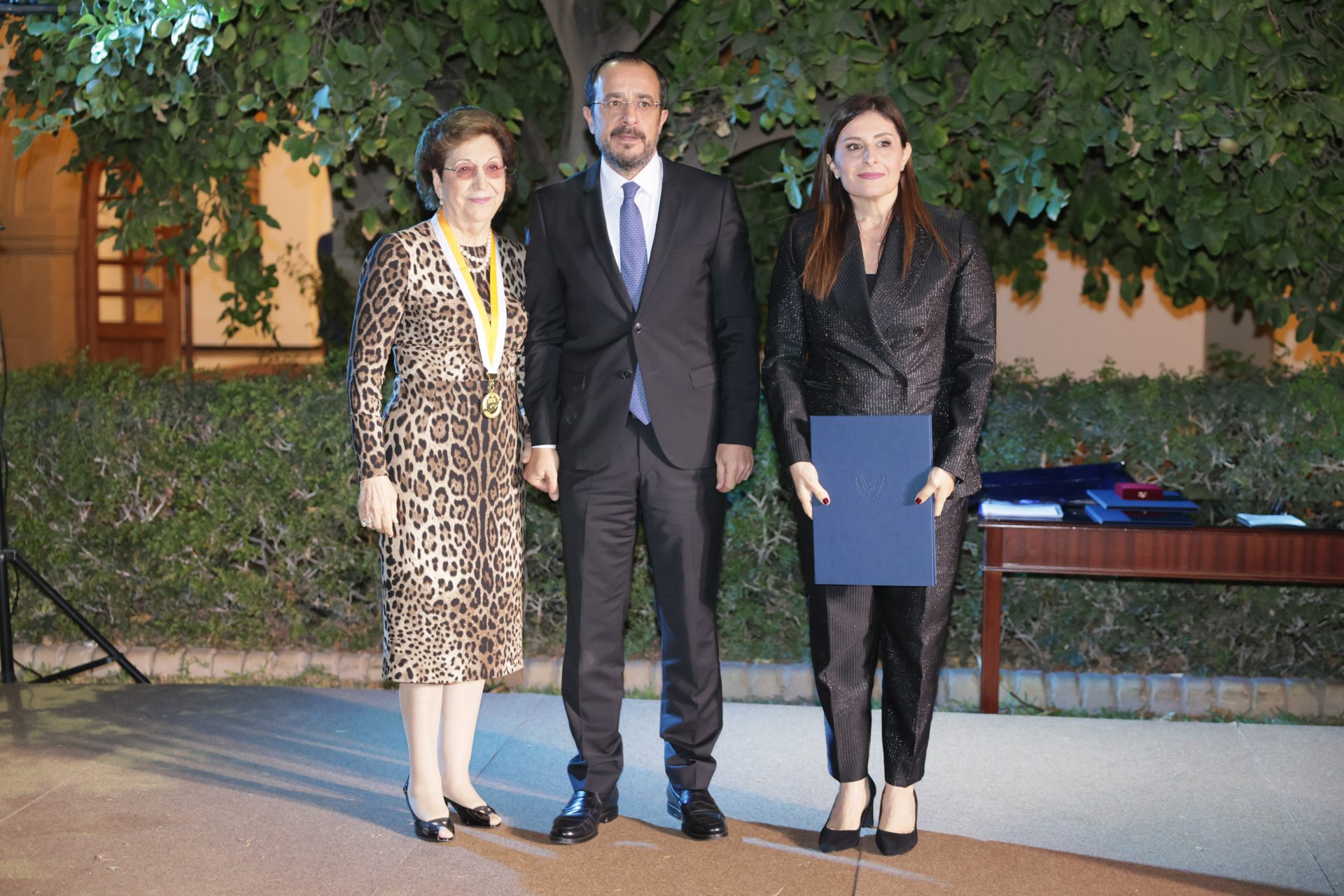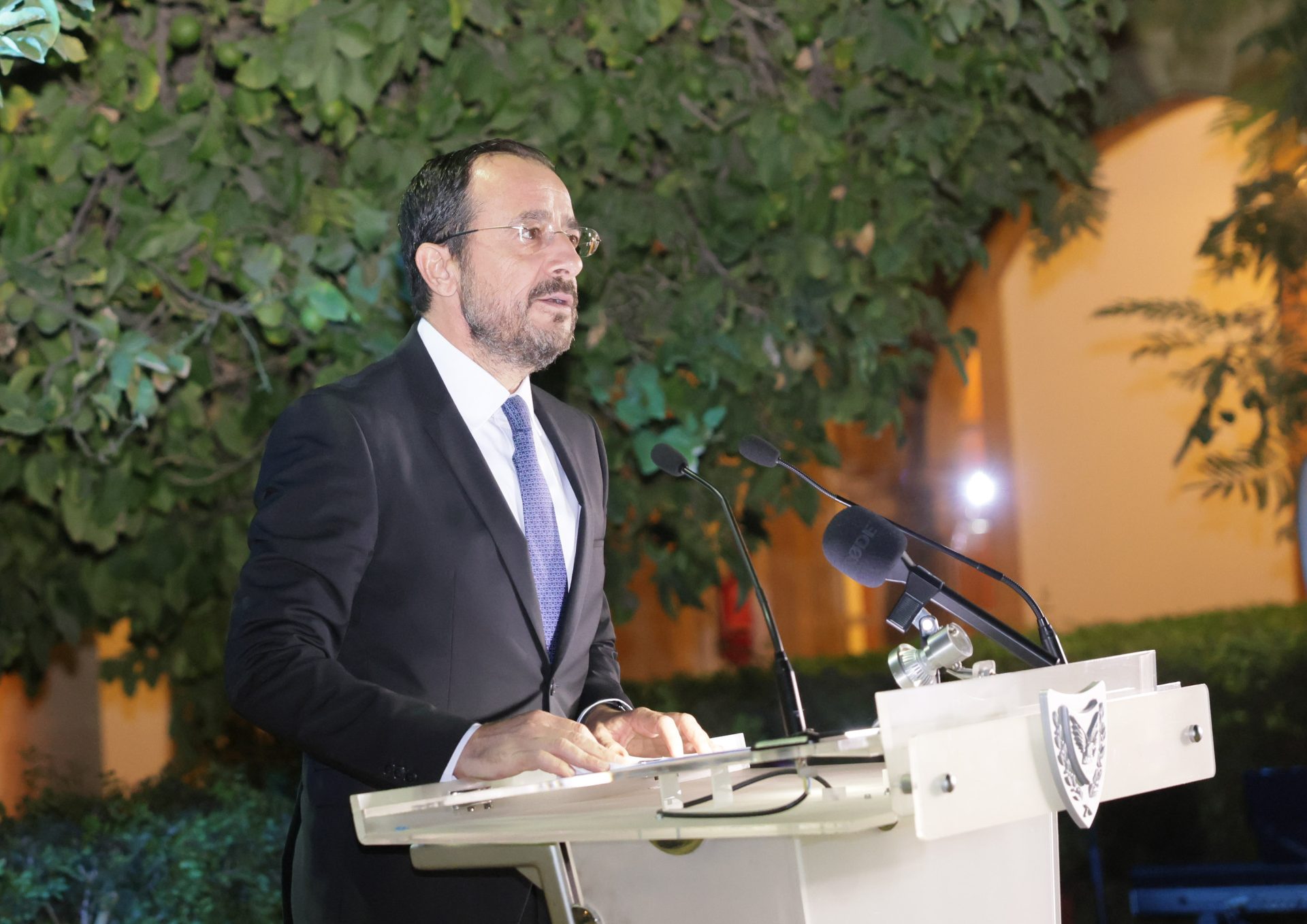Cyprus shipping revenues reach €918 million in late 2024
One of the government’s main goals, the qualitative and further strengthening of the Cypriot ship registry, has been achieved, president Nikos Christodoulides said on Sunday evening.
Speaking at a dinner at the presidential palace marking the start of the Maritime Cyprus 2025 conference, he stated that the registry recorded an increase approaching twenty per cent over the past two years.
The president welcomed participants, expressing “great pleasure” at hosting the dinner and highlighting the importance of the biennial event, which was first organised in Cyprus in 1989.
He said that the conference has now been “firmly established as a significant institution both in Cyprus and in international maritime affairs and has been substantially upgraded in recent years, both in quality and scale”.
Moreover, he said that he was “confident this year’s event would once again live up to the expectations of all participants from every corner of the world”.
Christodoulides mentioned that the unwavering support of the shipping community was “without a doubt a vote of confidence in Cypriot shipping and in our policies, which are always guided by the sustainable development of the maritime industry”.
He expressed “deep gratitude, on behalf of the state and personally, for the multifaceted contribution of the shipping community, which extends beyond economic activity into social and cultural spheres through continuous charitable actions”.
The president emphasised that global shipping continues to face multiple challenges, many of which stem from geopolitical developments unrelated to the industry itself.
However, he stressed the resilience of the maritime sector, saying that “it continues to adapt and play a vital role in the global economy thanks to the diligence and foresight of those working within it”.
Christodoulides said it was “now more imperative than ever to strengthen cooperation between the private sector, governments, and international organisations at all levels”.
“Only through close cooperation will we be able to address complex challenges, wherever they may arise, and perhaps turn them into opportunities,” he added.

Furthermore, the president underscored the decisive role of the International Maritime Organisation (IMO), the United Nations body responsible for regulating the global maritime framework.
He welcomed IMO Secretary-General Arsenio Dominguez, noting that he has known him personally since 2002 when serving as a diplomat in London, and thanked him for his presence and contribution to the conference.
He also conveyed Cyprus’ appreciation to the IMO for its long-standing support of the Maritime Cyprus conference, reaffirming Cyprus’ strong political commitment to actively participate in the organisation’s work and in the Secretary-General’s vision.
“Cyprus”, he said, “has been continuously elected to the IMO Council since 1987, reflecting its dedication to international maritime governance.”
The president also expressed “particular pride” that one of the government’s core objectives, the strengthening of the Cypriot ship registry, had been successfully achieved, mentioning the nearly twenty per cent growth in the past two years.
He attributed this success largely to enhanced cooperation with the Greek shipowning community and shipping companies based in Cyprus, as well as to the steadfast support of Cypriot shipowners.
Christodoulides said that a strong Cypriot ship registry “reinforces the country’s position on the global maritime map and at the same time promotes Cyprus internationally, with ships flying the Cypriot flag across the world’s seas”.
“This has even greater significance for us as a state that has been under Turkish occupation for fifty-one years,” he said.
Christodoulides assured that Cyprus “recognises and values the continued confidence shown in its reliable flag, that of a sovereign member state of the European Union”.
Additionally, he reiterated the government’s commitment to “continuously upgrade and improve the framework of services offered to shipping companies to meet the demanding conditions of the modern maritime sector”.
“For successive Cypriot governments”, he said, “the strengthening of the shipping cluster, a robust and multifaceted industry, remains a key priority.”
He further stated that revenues from ship management during the second half of 2024 reached €918 million, representing 5.28 per cent of Cyprus’ gross domestic product, marking a 27 per cent increase compared with the second half of 2023.
“This”, he said, “makes the ship management sector a powerful growth driver for the Cypriot economy.”
He also highlighted that the number of companies registered under Cyprus’ tonnage tax system increased by 15 per cent over the past two years.

The president said that this demonstrates both the advantages of Cyprus’ regulatory framework and its future potential.
Christodoulides explained that “for the government, the shipping cluster is not limited to shipowners and ship management firms but also includes all companies providing related services, many of which increasingly choose Cyprus as their operational base”.
He reaffirmed that strengthening this cluster remains a top government priority, adding that policies such as service digitalisation and the development of a “one-stop shipping centre” would make Cyprus one of the most attractive destinations for shipping companies.
The president further stated that Cyprus will assume the Presidency of the Council of the European Union on January 1, 2026, describing it as a “national mission” that he was certain the country would fulfil successfully.
He stressed that shipping will be among the top priorities of the Cypriot Presidency, especially as the European Commission is expected to present its proposal for the new EU maritime industrial strategy during that period.
Christodoulides said that he was “confident the new strategy would focus on strengthening the competitiveness of EU shipping and ensuring a level playing field within the sector”.
He expressed particular pleasure that European Commissioner Apostolos Tzitzikostas was present at the conference, describing him as “a close friend” and commending his exceptional work, which, he said, has been recognised by other European leaders.
Christodoulides added that during its EU Presidency, Cyprus will also seek to highlight other major challenges facing the shipping industry.
These include the shortage of merchant navy officers, the need for reskilling and upskilling seafarers, and the promotion of gender equality in maritime professions.
He announced that a related declaration is expected to be adopted during the informal Council of Ministers responsible for maritime transport, to be held in Cyprus in April 2026.
Moreover, he stressed that “shipping is a global industry without borders, operating in a highly competitive environment with unique challenges that can be transformed into opportunities through cooperation”.


He added that “continued dialogue and collaboration are essential” and assured that the government will keep working towards this goal.
It should be noted that the Maritime Cyprus 2025 conference, held in Limassol from October 6 to 8 under the theme “Unlocking the Future of Shipping,” brings together leading figures of the global shipping industry.
These include the IMO Secretary-General, European officials, presidents of shipping organisations, shipowners, senior executives, and other representatives of the international maritime community.
Organised by the Deputy Ministry of Shipping in cooperation with the Cyprus Union of Shipowners and the Cyprus Shipping Chamber, the event has evolved into one of the world’s leading maritime conferences, consistently attracting top industry personalities and organisations.
The conference focuses on key topics affecting the ever-evolving shipping industry, such as compliance with new international regulations, sustainability, environmental challenges, digital transformation, seafarer welfare, and financing in the global maritime market.
Its programme features discussions and presentations by distinguished speakers analysing industry developments and exploring how to “unlock” the potential shaping the future of shipping.






Click here to change your cookie preferences